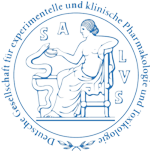GT-Preis des Arbeitskreises Alternativmethoden
GT-Preis des Arbeitskreises Computational Toxicology
GT-Preis des Arbeitskreises Regulatorische Toxikologie
GT-Preis des Arbeitskreises Inhalation Toxikology
GT-Preis des Arbeitskreises Emerging Topics
GT-Preis des Arbeitskreises Kanzerogenese
GT-Preis (Vortrag)
GT-Toxicology Award
Thomas Brüning
Im besonderen Fokus der Forschung des IPA, unter Leitung von Dr. Thomas Brüning, stehen Humanstudien, die gesundheitlichen Effekte direkt beim Menschen untersuchen: einerseits epidemiologische Studien zur Erforschung von Ursachenzusammenhängen beruflich bedingter Erkrankungen und Gesundheitsgefahren, andererseits experimentelle Humanstudien im Expositionslabor des IPA.
